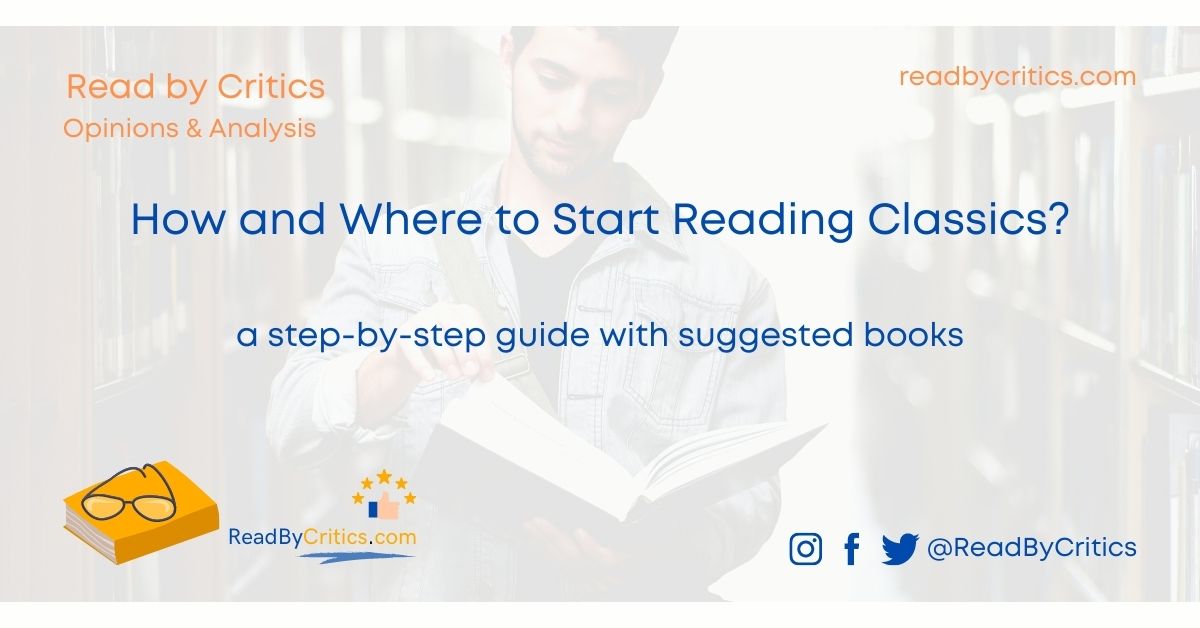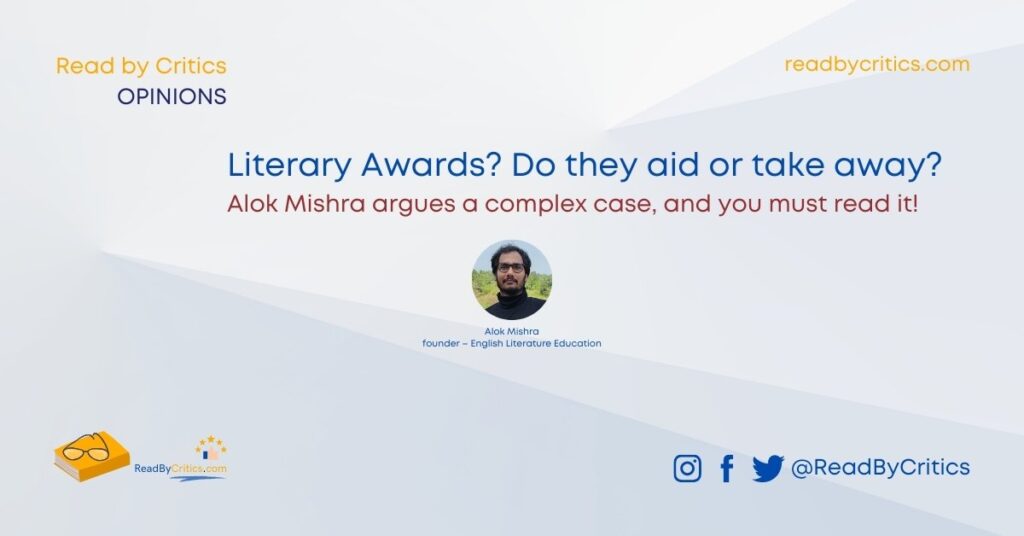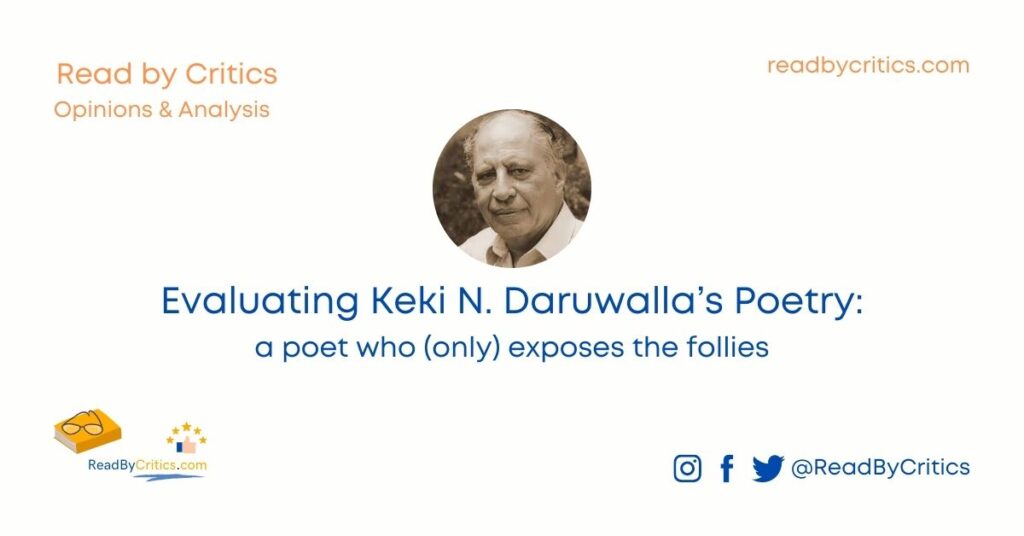If you have been a reader of this website, you must know that I vouch for reading and prefer it over any other form of leisure activity. Reading adds more to one’s personality than one might notice. However, with time, the changes do reflect and not only the person experiencing (and living) notices it, but others are compelled to note the same. It is like sports for the mind. You grow in many directions, however, for a change rather than developing your skills in only one direction. In the language of sports, you teach your mind to play chess, cricket, football, kho-kho, kabaddi, kit-kita (a famous childhood game in Bihar), snooker, poker, basketball, table tennis and many other sports at the same time… sounds weird? Yes, and too interesting as well! In aesthetic terms, reading is an exercise that adds multiple layers to your personae. Who might mind it? However, the question that many readers ask, after spending time with a few books, is about classics. What is classic in literature? This question might get many answers. What are some classics that one must read? This is also in the line of questions having multiple answers. However, how and where to start reading classics is something that many people often want to understand… and in these moments, only fellow reading enthusiasts can help the best way… not so-called experts or critics. So, in this article for ReadByCritics, I am offering my two cents on this important question – where to start reading classics (with a discussion on how to begin reading classics [for beginners and new readers]). Let’s dive into it.
Also read – best age to begin reading classics in literature
Note: While I would be delighted to guide you through the process of diving into the world of classics, I recommend you to utilise these suggestions and craft some plan by yourself – something that works the best for you – so that following it sounds familiar and viable to you. I can assure you embarking on a journey through timeless works of literature can be a transformative experience. It enriches your personality and broadens your intellectual horizons. And now, I present to you a step-by-step approach along with the benefits of reading classics and some recommended starting points (in the form of classic works of literature for beginners and thereafter).
Step 1: Sowing the Seeds of Curiosity
Are you interested in reading classics? You must be! However, it is ideal to know something before investing one’s time and efforts. And therefore, before embarking on your classic literature odyssey, it is essential to cultivate a genuine curiosity and open-mindedness towards the subject matter. Classic literature often explores complex themes, offers profound insights into the human condition, and challenges conventional perspectives. Approach these works with a willingness to explore new ideas and engage in critical thinking. Read about the opinions of others who have gone through enough classical works of English literature or literature in any other language. That should expose you to classics as well as the probable results of reading such works.
Step 2: Do you know why it happened? Get introduced to literary movements
Classical works of literature are not born out of a vacuum. And therefore, to be able to understand the nuances, appreciate the storylines, and get into the psyche of the characters in the classics, I suggest one should try to understand the historical and cultural context in which these immortal (mostly) works were written. And to do that, one has to go through the brief history of literature in the desired language, if not the full-fledged books of the history of English literature or any other language. If you want to read English literature classic novels, get introduced to the major literary movements such as the Romantic, Victorian, or Modernist periods. It might seem boring at the beginning, but understanding the broader cultural milieu can enhance your appreciation of the themes and ideas expressed in classic works.
Interested in modern novels: Read – Lessons in Chemistry by Bonnie Garmus Book Review
Step 3: Ready? Now begin with Classics Suitable for Beginner Readers
Running a race of 5000 meters requires many practices. Beginning with 200 meters and then slowly ascending into the KMs. The same applies here. You cannot begin with classics that will be the obituary of your journey! You need to feel classic literature, understand it, get accustomed to the linguistic treasures, and also prepare yourself for spending long hours reading tedious conversations and prolonged explorations of one’s psyche and emotional inquiries. I suggest going slow (and safe). It is wise to begin with relatively accessible works that still possess literary merit. This approach allows you to develop a foundation of appreciation while gradually acclimating to the language and style of classic literature. Some go-to classics for beginners may include:
1. Pride and Prejudice by Jane Austen: This cult romance complex, the beloved novel of readers of classics, explores themes of love, marriage, and social class in 19th-century England, showcasing Austen’s sharp wit and keen observations. Enriched with beautiful language and many episodes to keep readers lured, this book will be a good launchpad for beginners.
2. To Kill a Mockingbird by Harper Lee: Though it might be a little too boring for modern readers or readers not from the US, it will be a good novel to test the patience of readers (and probably prepare them for those hours of resilience while reading other tough novels). The work by Harper Lee examines racial injustice in the American South, this coming-of-age story offers profound insights into empathy, prejudice, and the power of perspective.
3. 1984 by George Orwell: George Orwell is a household name among those who have read hundreds of classics and also those who have just begun to explore the world of literary classics. A dystopian masterpiece, Orwell’s novel paints a chilling picture of a totalitarian society and serves as a cautionary tale about the dangers of governmental control. A rapid-paced classic that will be helpful for beginners if they want to understand the beauty that combination of classical literary merits and compelling narrative brings.
4. The Great Gatsby by F. Scott Fitzgerald: A beginner-friendly classic novel, offering a mixture of romance and sentimentally prolonged self-exploration, set in the Jazz Age of the 1920s, this novel explores themes of the American Dream, wealth, and disillusionment through the eyes of Jay Gatsby and his enigmatic pursuits.
Overall, these works will certainly provide engaging narratives, rich character development, and thought-provoking themes while still being accessible to readers unfamiliar with classic literature. All the best to the beginners!
Step 4: Done with the basics? Now try reading More Challenging Works
As suggested above, once you have been through the basic works of the classic literature genre, you can take an interest in reading advanced works that have been appreciated by critics and readers for many decades, a few centuries and some for even aeons… So, now that you become more comfortable with the language and style of classic literature, you can gradually tackle more challenging works. This progression will allow you to appreciate the depth and complexity found in the masterpieces of renowned authors. If you have somehow been with classic novels this far, here are some challenging works that you may enjoy reading (and test if you are still into classics, albeit with some advanced themes and complex narratives):
1. Moby-Dick by Herman Melville: What happens when you want something badly and lose almost everything in that pursuit? Obsession… desire… lust… In this novel, a classic for decades, you meet a sprawling epic that delves into themes of obsession, morality, and the nature of humanity. Moby Dick challenges readers with its dense prose and philosophical undertones. Ready for this? Go on and read now.
2. War and Peace by Leo Tolstoy: An ultimate patience-tester, this complex storyline and equally compensating plot spans decades (more) and covers hundreds of characters! A monumental work of Russian literature, this sweeping novel explores the human experience against the backdrop of the Napoleonic Wars, offering profound insights into love, war, and the search for meaning. If you can finish this Russian masterpiece in literature, you will be ready to meet new challenges.
3. Ulysses by James Joyce: Well, it is considered one of the most challenging novels in the English language by many critics. Therefore, many readers do not even read the novel beyond the first few pages while some venture a little more deep and bail out. Joyce’s masterpiece pushes the boundaries of form and language, requiring careful attention and multiple readings to fully grasp its intricacies. So, a little farther than War and Peace by Tolstoy, Ullysses will test your literary grasp, patience, and comprehension skills along with intellectual endurance. Read it to see if you are ready to unlock the levels where you pick up any book and finish it!
Step 5: Going Beyond the Text: Explore Contexts – Engage in Supplemental Reading and Analysis
Great! Now you are ready to engage with literary texts and their contexts as well. To deepen your understanding of classic literature, consider engaging in supplemental reading and analysis. Seek out reputable literary criticism and scholarly works that offer insightful interpretations of the classics. In addition, joining book clubs, attending lectures, or participating in online forums can also provide opportunities for fruitful discussions and exchange of ideas.
Bonus – how can reading classics in literature help you beyond providing literary pleasure?
The Enrichment of Personality through Classics is not something up for debate. It happens. It is a fact. Classics possess a unique ability to enrich one’s personality in comparison to other works of literature. You create for yourself a chance to gain insights into human conditions by delving into the timeless masterpieces of the past… and the present if you can get your hands on some truly meaningful novel which is also enriched with literary merits. Classics challenge our preconceived notions, broaden our perspectives, and encourage introspection. They offer a mirror through which we can reflect upon ourselves, our values, and our place in the world. Through engaging with classics, you develop empathy, critical thinking skills, and a deeper appreciation for the power of language and storytelling.
Conclusion:
I guess I have covered many points in this article. I hope it will help anyone who wants to understand the best ways to begin reading classics in literature. However, I do admit there may be many missing things in this article. I would love to read your suggestions and opinions in the comments section. Once again, I will end my train of thoughts with these reinforced opinions – embarking on a journey through the classics is a rewarding endeavour that can transform both your intellect and your character. By cultivating curiosity, familiarising yourself with literary movements, starting with accessible classics, gradually tackling more challenging works, and engaging in supplemental reading and analysis, you will embark on a path of literary discovery that will leave an indelible mark on your personal and intellectual growth. Embrace the classics, and let their timeless wisdom and beauty illuminate your literary journey. Don’t delay… just read the works as you please. I am also attaching a good video on this topic (on YouTube). All the best!
By Ashish for ReadByCritics




